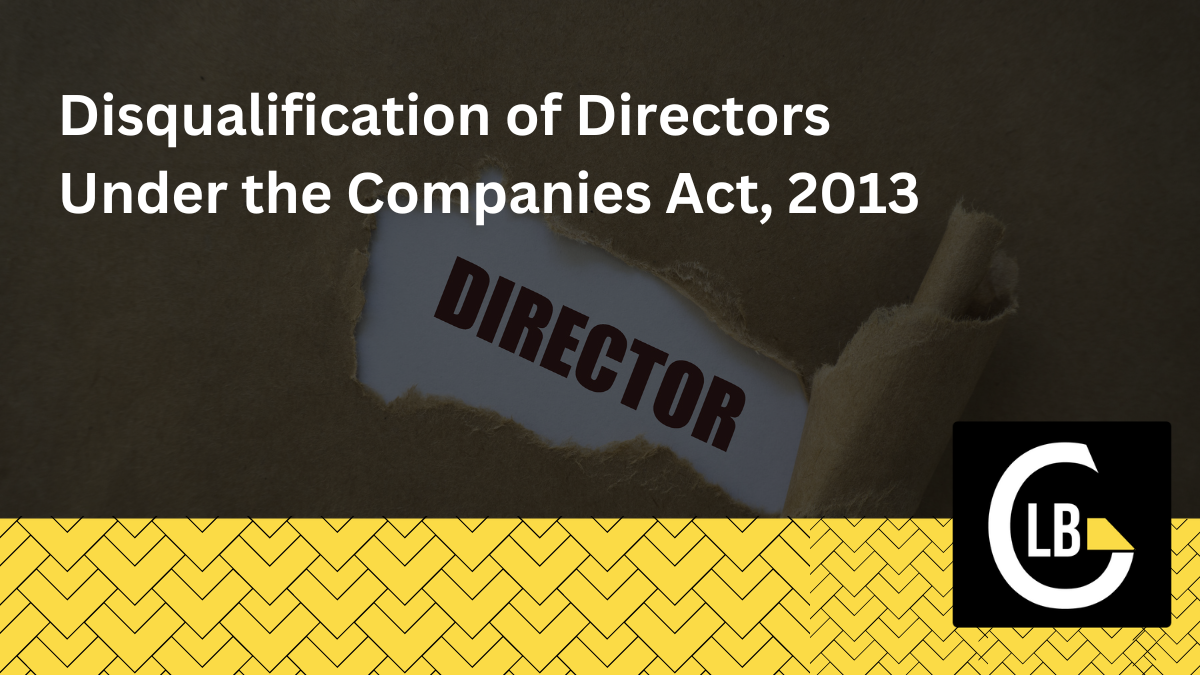Running a company comes with significant responsibilities, and when directors don’t meet those responsibilities, it can hurt not only the company but also investors, creditors, and the economy. That’s why the Companies Act, 2013, in India, has a system in place to disqualify directors who aren’t following the rules.
This system is outlined in Section 164 of the Act, which ensures that only the right people, with a clean record, can continue managing companies. The goal is straightforward: to promote honesty, accountability, and ethical behavior among directors.
Why is Disqualification of Directors Important?
The Companies Act, 2013, aims to prevent people with questionable financial practices or ethical backgrounds from leading companies. If a director isn’t meeting legal standards or fulfilling their responsibilities, they can be disqualified. This means they lose their right to manage the company and, in some cases, are prohibited from managing any company for several years.
Disqualification ensures that only responsible, law-abiding individuals can steer companies. It’s a way to protect everyone involved—from shareholders to customers—by keeping companies in good hands.
Reasons Directors Can Be Disqualified
Here’s a simple breakdown of why a director might be disqualified:
1. Personal Reasons for Disqualification (Section 164(1))
This section focuses on issues that affect a director personally. They can be disqualified if:
- Mental Health: A court declares them mentally unsound.
- Bankruptcy: They’ve been declared insolvent and haven’t been discharged.
- Criminal Conviction: If convicted of a crime involving moral turpitude (something unethical or wrong) and sentenced to at least six months in jail.
- Non-Payment for Shares: If the director hasn’t paid for their shares six months after the due date.
2. Company-Related Defaults (Section 164(2))
This section deals with issues related to how the company is run. Directors can be disqualified if the company they’re leading:
- Fails to File Financial Statements or Returns: If a company doesn’t submit its financial statements or annual returns for three years in a row, all its directors are disqualified.
- Fails to Repay Debts: If the company doesn’t repay its deposits, redeem debentures, or pay dividends for over a year.
What Happens When a Director is Disqualified?
If a director is disqualified, they can’t continue managing the company or any other company for a period of five years. During this time, they are barred from holding directorship in any other company as well. This is a serious consequence, holding directors accountable for non-compliance.
Can a Disqualified Director Fight Back?
Yes, they can. A disqualified director can appeal to the National Company Law Tribunal (NCLT) or other legal forums for relief. They can present their case and try to remove the disqualification, but they need strong legal grounds to do so.
Conclusion
The disqualification of directors is an essential part of the Companies Act, 2013, because it ensures that companies are run by qualified, ethical, and responsible people. Disqualifying directors who don’t meet the standards helps prevent corporate mismanagement and ensures that businesses are in safe hands.
In the end, this process protects not only the company but also its shareholders, employees, customers, and the economy as a whole. It’s a safeguard for good governance, ensuring that companies operate transparently and directors are held accountable for their actions.
